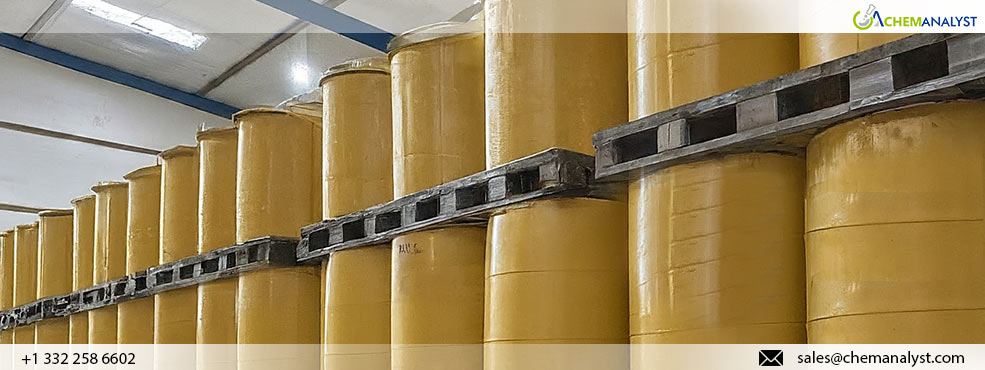Welcome To ChemAnalyst

Hamburg (Germany): In July, the n-Propyl Acetate market in Germany remained stable, with stock levels adequately meeting downstream demand. Methanex reported a monthly increase in methanol prices, potentially to impact the value chain and drive-up n-Propyl Acetate prices in future.
The European n-Propyl Acetate downstream construction industry faces a significant labour shortage, with nearly half of the sector's jobs unfilled. Germany’s Manufacturing PMI showed minimal change in June 2024 compared to May, signalling a new setback for the sector. Contraction rates in output and new orders have accelerated, with firms reporting deeper declines in pre- and post-production inventories. The reduction in work backlogs has accelerated, leading to a continued decrease in workforce numbers for the twelfth consecutive month. While weak n-Propyl Acetate demand has pressured input costs and factory gate charges downward, the rate of decline has eased slightly.
Efforts to improve reliability have included faster sailing and increased n-Propyl Acetate capacity, but war risk insurance premiums have surged. Despite rising n-Propyl Acetate feedstock Acetic Acid prices and moderate weakness in downstream demand from the construction industry, an increase in n-Propyl Acetate prices is anticipated.
n-Propyl Acetate Domestic plants are running at optimum capacity to meet demand, maintaining adequate market supply and putting traders at a disadvantage. The ongoing Red Sea crisis has disrupted global supply chains, particularly affecting Asia, leading to higher import values and stabilizing domestic inventory prices at elevated levels. Despite robust domestic production, particularly for the construction sector, increased risks from Houthi activity may lead to a price rise. Ocean freight rates from Asia to Europe are exceeding contract rates due to tightened vessel capacity. Longer transits via southern Africa are limiting available space, and the Red Sea situation has necessitated rerouting around the Cape of Good Hope, increasing journey times and delivery costs.
Demand in the n-Propyl Acetate downstream construction sector remains weak as several companies face bankruptcy. Rampant inflation has further decreased demand, prompting the European Central Bank (ECB) to raise interest rates. In June, 46.3% of companies in Germany's commercial building construction sector reported a lack of orders, up from 45.2% the previous month. However, the ECB's recent decision to cut interest rates by 25 basis points to 3.75% is expected to boost market sentiment as mortgage rates are anticipated to decrease.
In Germany, the sharp elevation in housing stock is partly due to low construction activity for vacation homes along the coast, which may overestimate the number of dwellings available for primary residences. Construction costs are expected to rise at a subdued rate, leading to increased n-Propyl Acetate downstream inquiries.
We use cookies to deliver the best possible experience on our website. To learn more, visit our Privacy Policy. By continuing to use this site or by closing this box, you consent to our use of cookies. More info.
